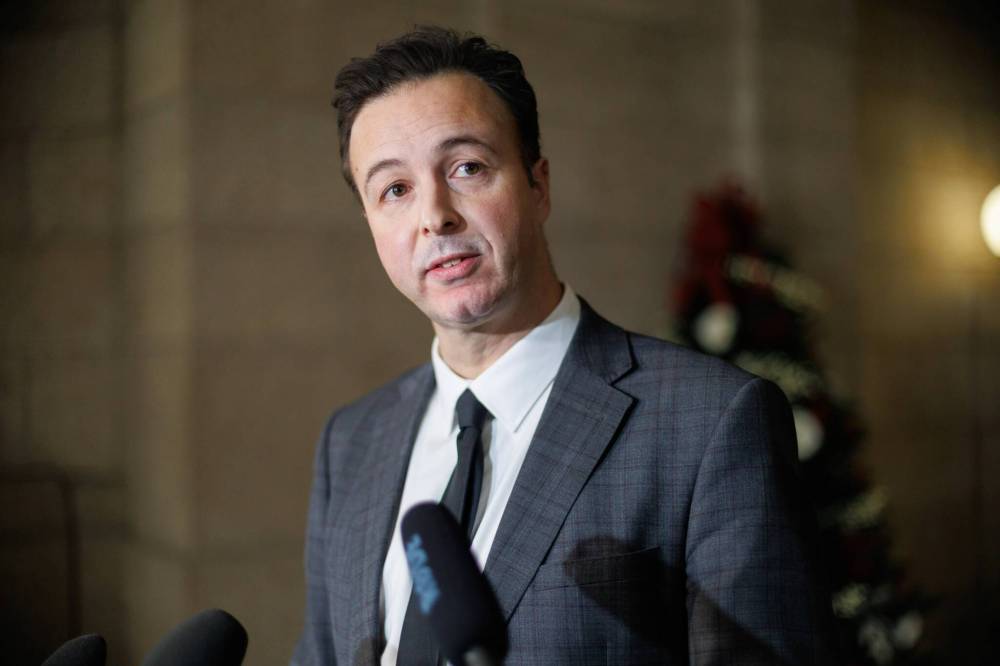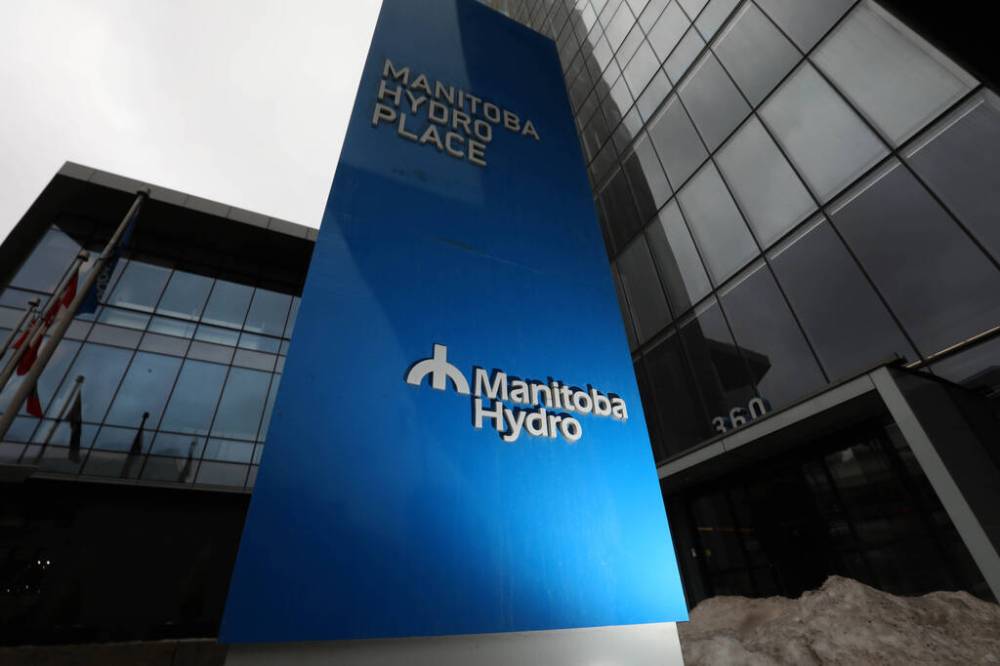Tories’ reckless fiscal sleight of hand leaves Kinew, Manitobans in need of Hydro magic
Advertisement
Read this article for free:
or
Already have an account? Log in here »
To continue reading, please subscribe:
Monthly Digital Subscription
$0 for the first 4 weeks*
- Enjoy unlimited reading on winnipegfreepress.com
- Read the E-Edition, our digital replica newspaper
- Access News Break, our award-winning app
- Play interactive puzzles
*No charge for 4 weeks then price increases to the regular rate of $19.00 plus GST every four weeks. Offer available to new and qualified returning subscribers only. Cancel any time.
Monthly Digital Subscription
$4.75/week*
- Enjoy unlimited reading on winnipegfreepress.com
- Read the E-Edition, our digital replica newspaper
- Access News Break, our award-winning app
- Play interactive puzzles
*Billed as $19 plus GST every four weeks. Cancel any time.
To continue reading, please subscribe:
Add Free Press access to your Brandon Sun subscription for only an additional
$1 for the first 4 weeks*
*Your next subscription payment will increase by $1.00 and you will be charged $16.99 plus GST for four weeks. After four weeks, your payment will increase to $23.99 plus GST every four weeks.
Read unlimited articles for free today:
or
Already have an account? Log in here »
Hey there, time traveller!
This article was published 25/03/2024 (631 days ago), so information in it may no longer be current.
In roughly 90 days, the fiscal predicament facing Manitoba’s NDP government has gone from bad to off-the-charts, precedent-setting worse.
Last week, Finance Minister Adrien Sala released the province’s third-quarter financial update, showing that a record-setting $1.6-billion deficit appears poised to grow to almost $2 billion.
There are a number of forces behind the surge in deficit spending, some outside the direct control of government and some more closely related to bad performance or decisions by the Progressive Conservatives.

Inflation and high interest rates have slowed economic growth and tax revenues. And on top of deep tax cuts introduced by the Tories, Premier Wab Kinew gave away more revenue with a gasoline-tax holiday that will cost the treasury more than $163 million: $82 million in the 2023-24 fiscal year, and another roughly $81 million in the next fiscal year.
However, Sala said the biggest hit came from the fact the PCs did not account for the cost of settling multiple contracts with unionized workers.
Attempting to impose a wage freeze by sheer will, the PC government for years simply ignored expiring contracts and refused to negotiate new deals, creating a liability owing to years of retroactive pay increases that would have to be put on the books someday.
That day, it appears, is now.
But there are other, less-visible forces driving the budget. And among the biggest is the mixed blessing that is the “summary” budget.
Back in the mid-2000s, Gary Doer’s NDP government amended the balanced-budget law to comply with a request from auditor general Jon Singleton to adopt generally accepted accounting practices in its financial reporting.
Singleton asked government to stop reporting a surplus or deficit based on the “core” budget that accounted only for programs and spending it delivered directly, and focus on the bottom line on the “summary budget” which includes everything government does both directly and indirectly through its Crown entities.
Unfortunately, while the summary budget is consistent with GAPP, it does not necessarily make for a clearer picture of government finances. Last week’s third-quarter financial update is an excellent case in point.
In addition to the unfunded contract settlements, the other big driver of the $2-billion deficit is something that has nothing to do with government programs or spending: a tragic reversal of financial fortune at Manitoba Hydro.

After years of huge profits, driven by lucrative export sales made possible by high water levels, Hydro finances have come crashing back to earth. The final numbers for the current year are not known, but some early estimates are that there could be a swing of more than $500 million in the utility’s year-end financial standing, taking it from a healthy profit to a nagging shortfall.
And thus, the inherent flaw in summary budgeting is exposed: in years when water levels are high and electricity exports are robust, the summary budget bottom line looks better because of Hydro’s net profit; in drought years when exports drop, the budget looks much worse because Hydro has fallen into a net loss.
Given that it is so easily influenced by Hydro and meteorology, the summary budget does not make an effective measuring stick with which to judge the fiscal competency of a government.
A couple of examples from the past:
For the 2004-2005 fiscal year, the NDP government posted a record surplus of nearly $600 million after logging a $579-million deficit the year prior.
At first blush, one might be tempted to applaud Doer and his finance minister, Greg Selinger, for being masterful fiscal managers. In reality, that surplus was less about fiscal acumen and more about good old-fashioned luck.
Selinger conceded that Manitoba’s surplus was due in large part to a $570-million turnaround at Hydro, where heavy snowfall and spring rains helped turn a $436-million loss the previous year into a $137 million surplus.
The NDP certainly took political credit for the surplus, even though heavy rains had more to do with the turn of events than any measure of fiscal skill. Such is the prerogative of the party in power.
The second example is the fiscal bait-and-switch used by former premier Brian Pallister.

The Tories took power in 2016 seeking to cut as many taxes as possible, as deeply as possible. But Pallister also had to show Manitobans he could make steady progress towards a balanced budget.
On the surface, cutting taxes and reducing the deficit are conflicting goals. However, Pallister was able to use relatively stable Hydro revenues to create the illusion he was having his cake (cutting taxes) and eating it too (shrinking the deficit). In fact, taking away Hydro finances from the equation, all he did was borrow money and add to the province’s debt to cut taxes.
All of which brings us back to Sala, Kinew and their first provincial budget next Tuesday.
The fiscal errors of the Tory governments of Pallister and Heather Stefanson — cutting taxes too deeply and too quickly, underfunding core services, refusing to settle contracts with unionized workers — helped build the record deficit the NDP has inherited.
And that means the NDP, now fully in control of the budget process, is going to have to focus on two main strategies.
Find bold and creative measures to manage the province’s finances. And pray for rain.
dan.lett@winnipegfreepress.com

Dan Lett is a columnist for the Free Press, providing opinion and commentary on politics in Winnipeg and beyond. Born and raised in Toronto, Dan joined the Free Press in 1986. Read more about Dan.
Dan’s columns are built on facts and reactions, but offer his personal views through arguments and analysis. The Free Press’ editing team reviews Dan’s columns before they are posted online or published in print — part of the our tradition, since 1872, of producing reliable independent journalism. Read more about Free Press’s history and mandate, and learn how our newsroom operates.
Our newsroom depends on a growing audience of readers to power our journalism. If you are not a paid reader, please consider becoming a subscriber.
Our newsroom depends on its audience of readers to power our journalism. Thank you for your support.









